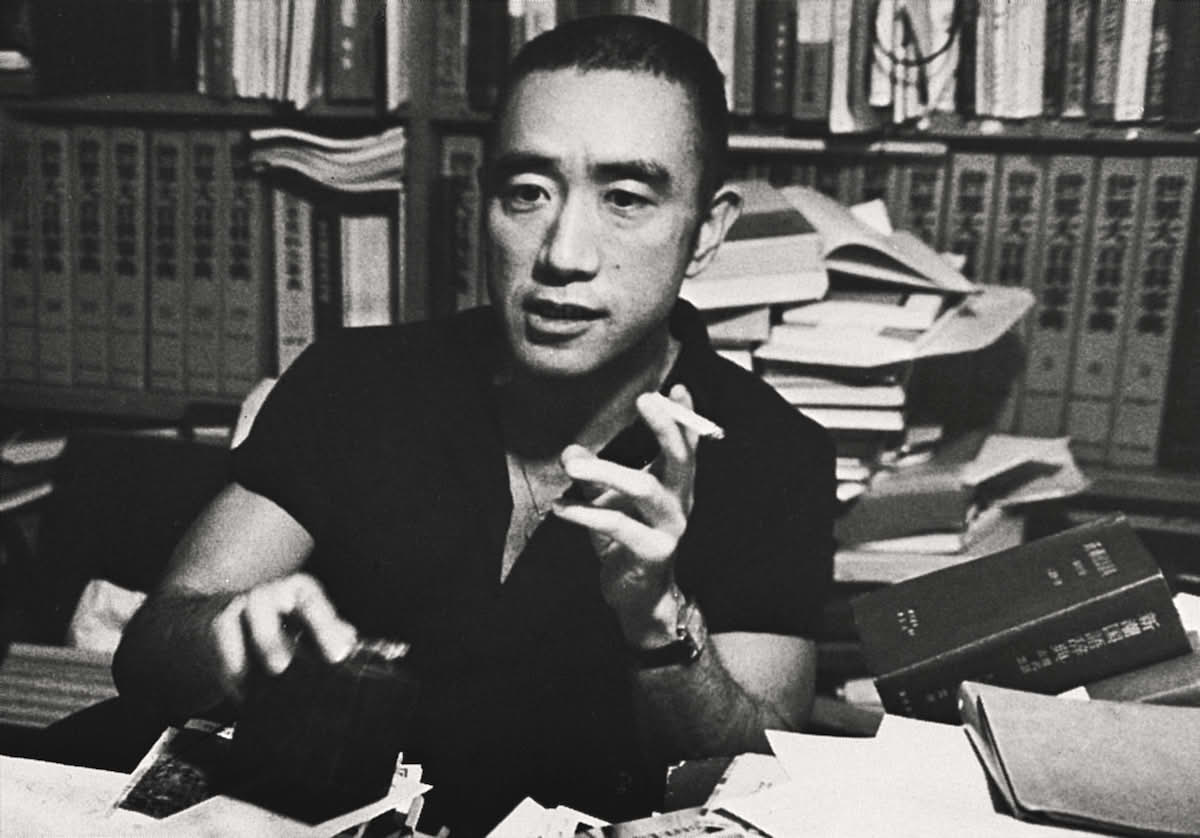*Imported from Substack
Hello readers! Yesterday morning, it was brought to my attention by Henry Eliot’s wonderful article that January 14th, 2025 is the 100 year anniversary of the birth of Yukio Mishima, the prominent and disruptive author of 20th century Japan. Mr. Eliot wrote a great biography of Mishima that I highly recommend, and additionally I’ll add the biography by Damian Flanagan where I learned most of my knowledge about the author himself.

But why take the time to learn about Mishima among the sea of authors to choose from? Beyond his brilliance, which should not be understated, he led a fascinating life so irreversibly intertwined with his work that it is compelling, if not necessary, to investigate the author. His frenetic writing habits, cyclical in its nightly streaks and sometimes multi-day sprees, reflects his obsession with the craft. As a writer, he was ambitious, bold, and deeply interrogated questions of death, beauty, the erotic, and purity.
Flanagan argues in his biography that Mishima lived a life uniquely and importantly split down the middle, with a twenty year period before World War II and a twenty year period after. It may have been this that began his endless ambition for the majority of his career, as his status before the war was one of the young prodigy, which was largely lost after, prompting a desire to reattain such high acclaim. Or perhaps it was his upbringing, with a father determined to put Mishima in a career of finance, prompting Mishima’s desire to reach greater heights in an alternative career. Nevertheless, Mishima was an insatiably ambitious author and highly cognizant of his own success. He was highly prolific, writing novels, essays, and plays, often quite entrenched in critical acclaim and public acknowledgement. It is interesting to note the hypocrisy Mishima created in his own life, between his ultranationalistic assertions and appeals to Japanese tradition and his frequent desires for Western acclaim in his determination to get his plays performed abroad and his ultimately failed quest for the Nobel. Regardless, Mishima was bent on becoming the author of his time, and in some ways achieved that mission in his status as arguably the most important Japanese author of the 20th century.
A few notes on some of his works: Confessions of a Mask is Mishima’s highly autobiographical work reflecting on his childhood and homosexuality. Although he is said to have written this intentionally selecting the perspective of a young homosexual man, not necessarily his own, his future endeavors undoubtedly reveal truths to his homosexual identity to say the least! Further works often discussed today include The Sailor Who Fell from Grace with the Sea and Temple of the Golden Pavilion, both featuring spirits of instability and torment. He additionally wrote a lengthy essay on physical health, Sun and Steel, and a few perhaps traditionally acceptable romance novels such as The Sound of Waves. However, his most important work must be his four-book series The Sea of Fertility. Following a unique format (to be awkwardly vague) across these four novels, Mishima interrogates what he believes to be the rotting society of Japan by presenting tragic stories of spirits untainted by corruption and modernized decay. This past year, I read the first two novels, Spring Snow and Runaway Horses, and thought they were fantastic, among my top reads of the year and perhaps all time.

This series, however, carries special and harrowing meaning with regard to Mishima’s life. Simultaneously with the writing of the series, Mishima’s ultranationalistic views evolved into a (largely self-funded) endeavor to lead a special group affiliated with Japanese defense forces called the Shield Society. Mishima trained a troupe of young men intellectually and physically into a group that personified his strongest beliefs of unadulterated Japanese spirit, youthful vitality, and complete loyalty to the Japanese Emperor. Quite an unorthodox activity for an author!
These later years of his life indeed led to the event that arguably dominates his persona as a historical figure today – his death. Immediately after packing away the last manuscript of the final novel of The Sea of Fertility, Mishima first led an incendiary speech the Japanese defense forces hoping to rile these young men into action, and, following its relative failure, took a high member of Japanese forces hostage and ultimately committed seppuku, or Japanese ritual suicide. A horrific image that shocked Japan, Mishima ended his life as a tormented, strange, puzzling, yet brilliant figure.
Mishima is undoubtedly a figure worth studying. I’ve read the two novels I mentioned above as well as Confessions of a Mask, and I wholeheartedly believe in the exceptional nature of his artistry – not only are his ideas radical, both philosophically and politically, but additionally his writing is beautiful and truly exemplifies mastery of thought. I’d often come across metaphors or phrases that stopped me dead in my tracks in its profoundness, and I know that his books have changed my worldview. So, I urge anyone and everyone interested in literature to look into Mishima. He is an author and a thinker of rare depth and brilliance, and anyone remotely interested in the life-questioning themes I perhaps insufficiently mentioned above would find his life works extremely worthwhile. Happy birthday to Mishima!

Leave a Reply